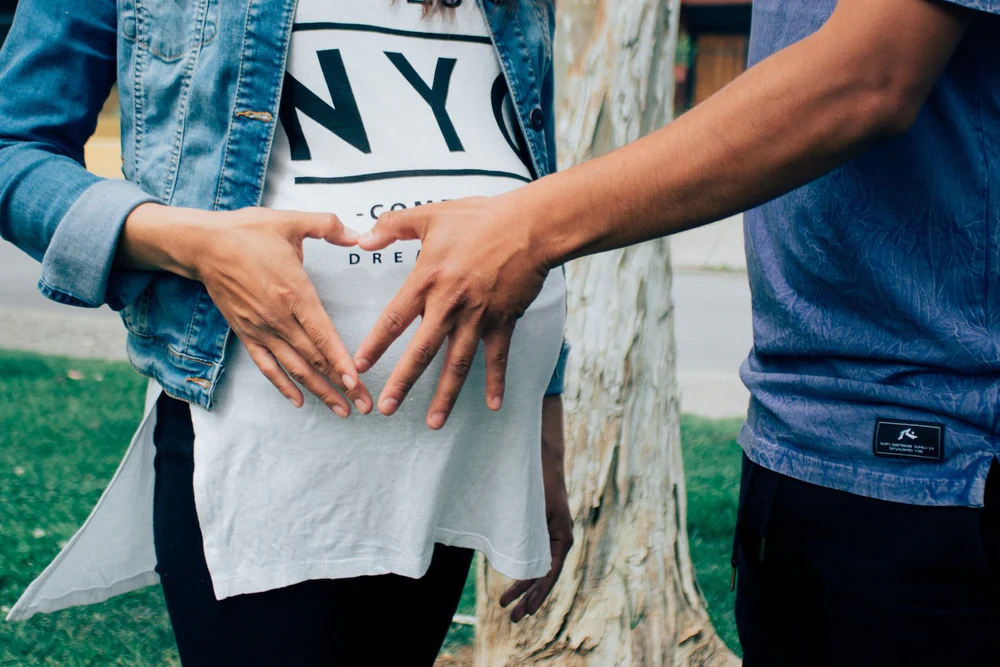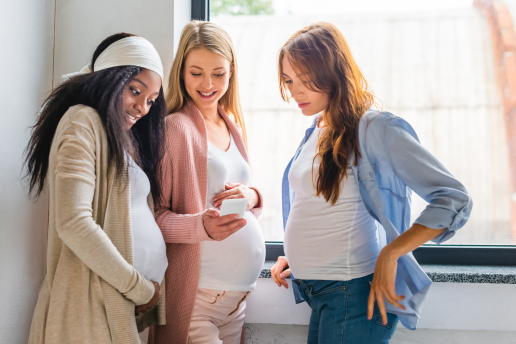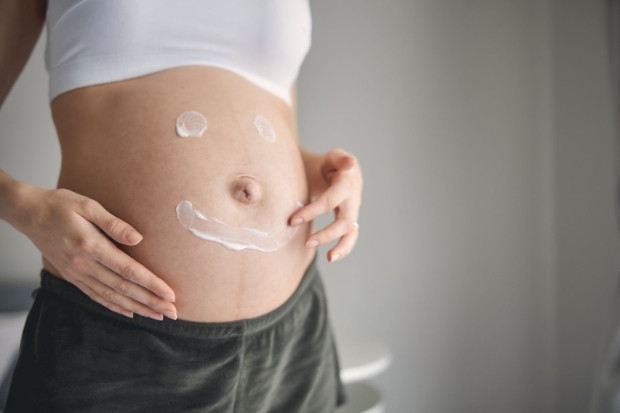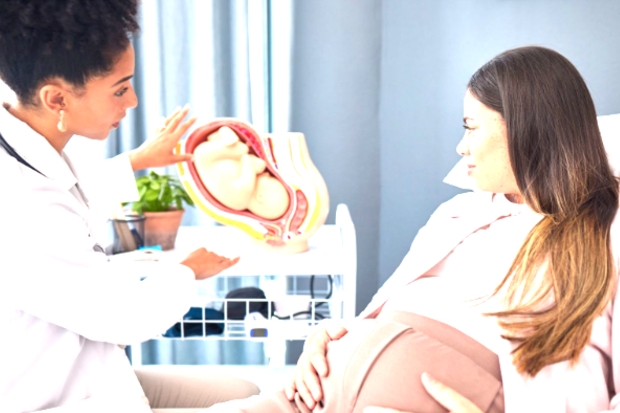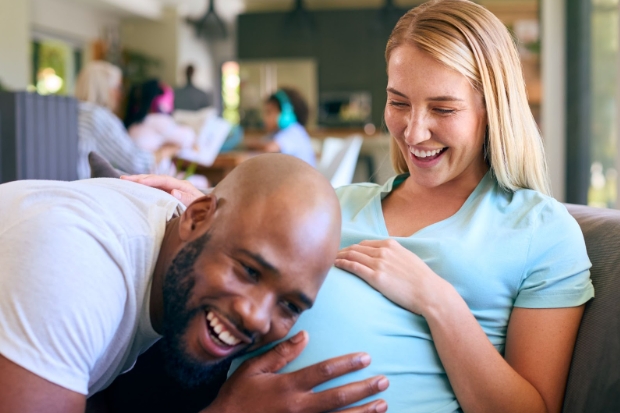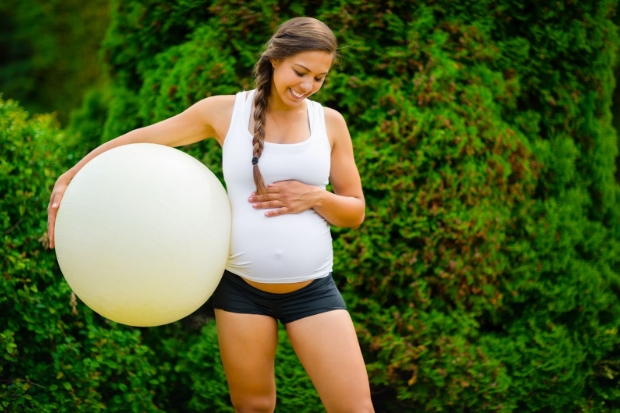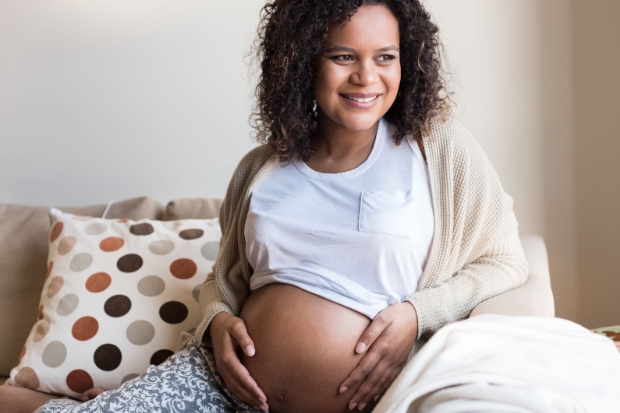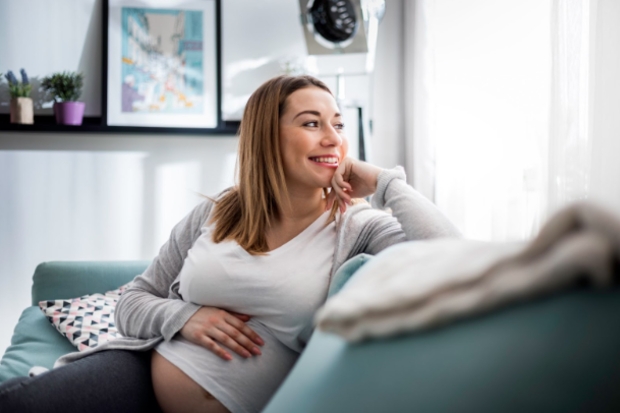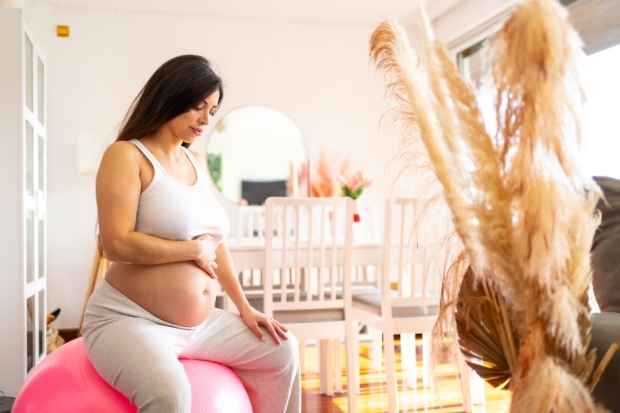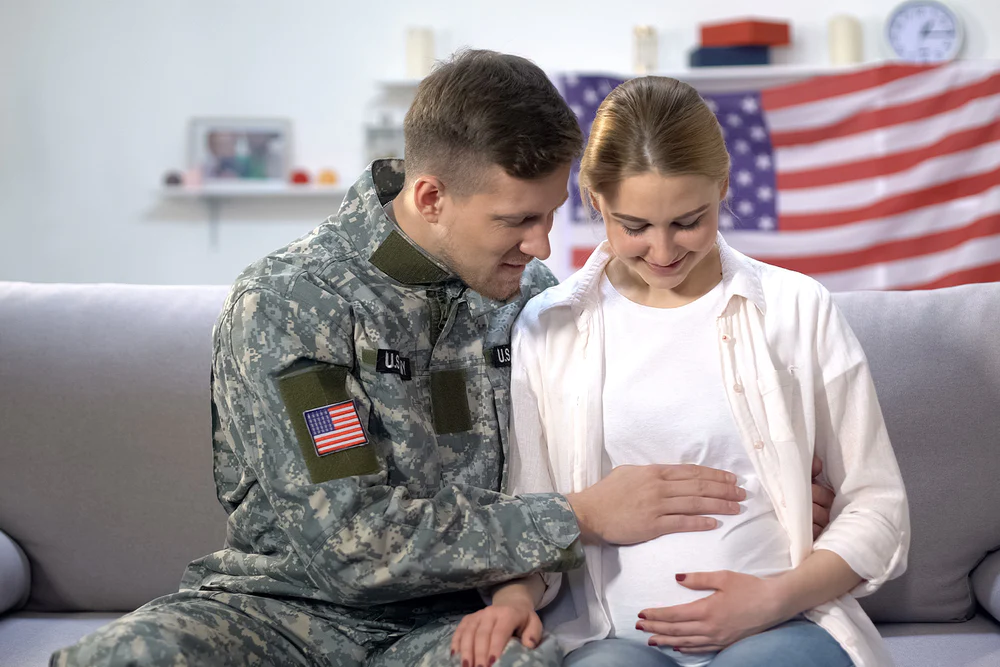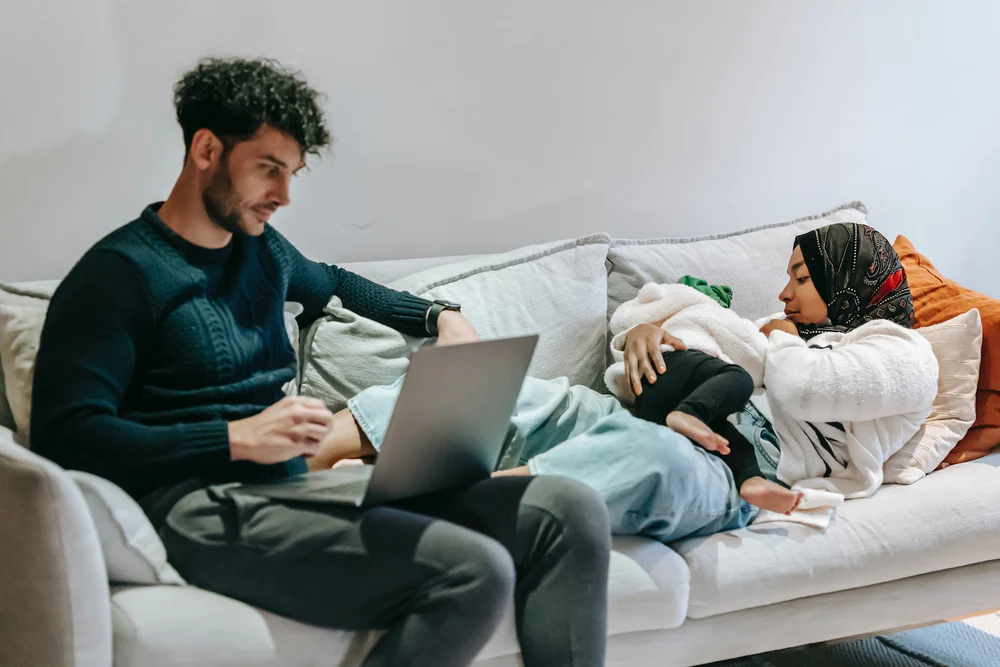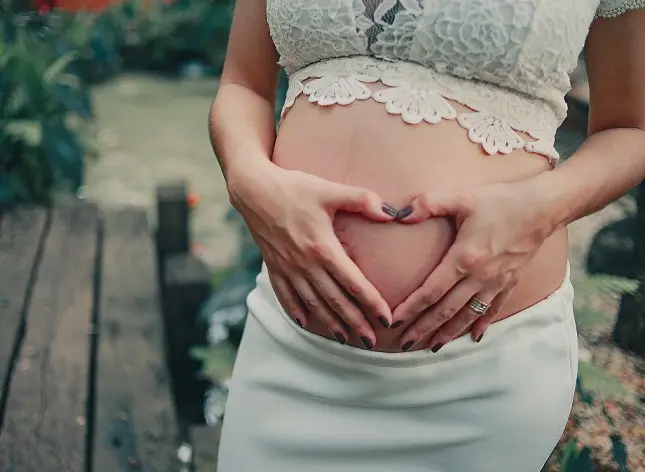During pregnancy, your body will go through so many changes. One of the most obvious changes is that your belly will begin to pop out. Some pregnant women look forward to showing off their beautiful baby bumps, but other mothers may feel uncomfortable with this change.
Sometimes it helps to mentally prepare for the growth of your little one, and knowing when it will happen can give you some time to think about how it will happen. Whether you want to know when your baby bump will appear out of excitement or out of a desire to prepare yourself mentally, we can help you learn more about how your baby’s growth affects your pregnancy.
At Mommy Care Kit, we understand the importance of learning about the things you’ll experience during pregnancy. When your baby bump starts to appear, it’s an outward sign of many other inward changes that are happening. Let’s learn about them.
When Will I See My Belly Bump?
Every pregnancy is different, so not every mother will see their baby bump at the same time. Generally, if it’s your first pregnancy, you won’t notice your baby bump until the middle of your second trimester, which is around 16 to 20 weeks.
Depending on your body type, you may be able to see it earlier or later since both your height and weight can affect when your belly bump can appear. At first, it may sort of look like you’re bloated, like you ate a large, delicious meal.
Although you may notice your belly bump around the 16-20 week mark, other people may not notice until the end of your second trimester, especially if you prefer to wear baggier clothes or need to wear multiple layers, especially in winter.
Are There Any Factors That Change That?
As we mentioned previously, things like height and weight can change when you notice your baby bump. If you’re shorter, you’re more likely to see your baby bump earlier since there’s less room for your little one to grow. Tall women have more space for their little ones, so if you’re tall, you may not see a baby bump until later.
If you’re older or on your second or third pregnancy, you’ll probably notice your belly pop out earlier, sometimes even in the first trimester. When we’re older, abdominal muscles tend to be looser, which means they’ll stretch out better, showing our baby bumps sooner.
The same thing goes for women who have had a previous pregnancy. Their muscles and skin have already stretched out once before, so it’s easier for them to do it again. They’re much more elastic. Some second or third-time mothers need to start wearing their maternity clothes by the time they’re eight weeks.
If you’re pregnant with multiple babies, like twins or triplets, you’re also more likely to show sooner. It’s a space issue. Since there are more babies taking up the space in your womb, your uterus will need to grow bigger to accommodate your baby. We talk about these factors more in this article on when moms start showing.
What About My Belly Button?
Some mothers will notice their innie belly button pop out around the end of their second trimester or in the third trimester. It’s usually painless, and it should return to normal after your baby is born.
Usually, this happens because there’s additional pressure on your abdomen due to the growing fetus. You may experience some irritation since your belly button isn’t used to rubbing against your clothes. You may want to put a band-aid on it or wear a loose dress.
Why Does My Belly Pop?
You may be wondering why your belly pops out. It’s primarily an issue of space. As your baby grows and their organs and genitals develop, they get bigger. Before your pregnancy, your uterus is about the size of an orange, so as your baby grows, your uterus grows with it.
When you’re around 13 to 14 weeks, at the very beginning of your second trimester, your uterus will have popped out from your pubic bone. It’s too big to stay in your pelvis, and your OB-GYN will be able to feel it. As your pregnancy continues, your uterus grows around an inch every week.
Once you reach this point, your healthcare provider will start measuring the height between the top of your pelvis and your uterus, which is called the fundal height. It helps them keep track of the baby’s growth, and when you reach 20 weeks, the measurement will match up with where you are in your pregnancy, so the height will be 20 inches.
How Does the Baby’s Growth Affect My Muscles and Organs?
When your uterus grows to accommodate your little one, it’ll put some pressure on the rest of your organs and muscles because they’ll need to move out of the way too. Your experience of this will be different through each trimester.
The First Trimester
During your first trimester, your uterus will grow from the pre-pregnancy size of an orange to a grapefruit. Although it still fits within your pelvis, it’s starting to pop out. You probably won’t notice any aches or pains yet from the growth; it’s still pretty small.
If you’re carrying multiple children, your uterus will be a little bit bigger at this point, and your midwife or OB-GYN may even be able to feel it.
The Second Trimester
During the second trimester, your uterus won’t fully fit in your pelvis anymore since it’s roughly the size of a papaya. You’ll probably start to notice things like round ligament pain, lower back pain, and abdominal pain.
Usually, you won’t experience these shoots of pain consistently, except maybe some soreness in your back. However, by wearing a pregnancy belt, you may be able to alleviate some of the pressure on the surrounding muscles, especially the ones in your lower back. Tools like The Pregnancy Kit can help alleviate some aches and pains and may even be covered by insurance.
The Third Trimester
By the time you reach the end of the third trimester, the uterus will be watermelon-sized. It will span from your pelvis to your rib cage. There’s more discomfort during this period since most of your organs will be pressed up against each other and your uterus.
However, your little one should drop in your lower pelvis once you’re getting close to giving birth. Luckily, some of that pressure should be alleviated near the end of your pregnancy.
What Will It Feel Like?
As your baby bump grows, you’ll notice a few different things. There will probably be some discomfort from the pressure on your abdominal muscles. You may also experience strain on your lower back since the extra weight in the front means you need to readjust your posture to maintain your balance.
By rubbing your belly, you’ll notice that your abdomen is firmer than usual. In some areas, you may even notice a hard spot, which may be your baby hanging out.
When your baby starts kicking, you might see the impression of their feet or at least a little round bump moving across your abdomen. Even if you can’t see their movements, you’ll most likely be able to feel them.
Sometimes it feels like a small flutter or gas moving through your system. Once your baby gets stronger, though, you’ll feel some forceful kicks and punches. Sometimes they’ll hit the abdominal wall, but babies may kick your other organs and even your bladder.
You can talk to your little one about how much you love them, your life, and even how much they’re growing, promoting bonding and comfort for you and the baby.
If you already have kids, you may not have as much time to sit back and relax, but you can still talk to your baby about their siblings and vice versa. If you want, encourage your other children to bond with the baby, too, by feeling their kicks and talking to them.
Understanding Pregnancy Changes
Pregnancy can be difficult for any mother, so it’s important to find ways to work with your body. There are many ways that you can alleviate some of the discomfort that comes with your growing baby; you just need to know when to use them.
Waiting to see your baby bump is exciting, especially if you know when you’ll be able to start noticing a change. If you don’t feel very excited about this change, you don’t need to worry. That’s normal too. However you feel about it, understanding what’s happening as your baby grows can help you prepare and adjust for your little one.
A pregnant belly can be super exciting. It means you are that much closer to your due date and meeting your new little one for the first time.
Finding the best way for you to experience your pregnancy is the goal. If you need some extra support, you can consider a belly band or other apparatus that alleviates the pressure that your growing baby may cause.
Sources
First Trimester Of Pregnancy: What To Expect | Cleveland Clinic
When Will I Start Showing in Pregnancy? | lamaze.org
Why Do Belly Buttons Pop During Pregnancy? | Cleveland Clinic

